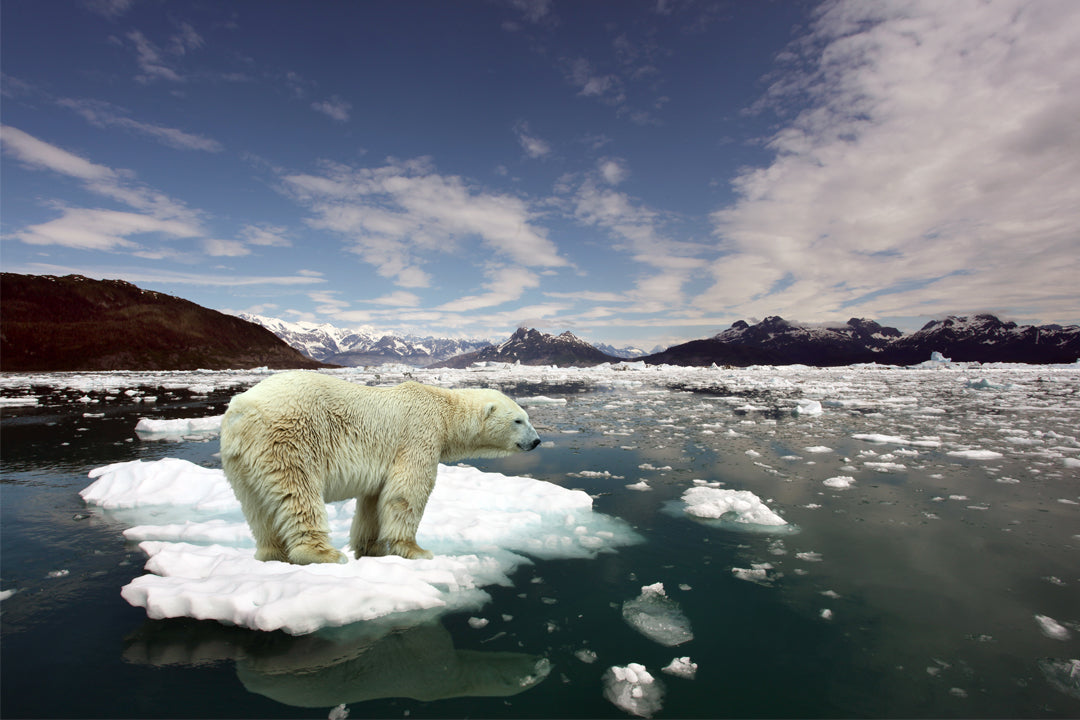

The Role of Oceans in Climate Change: Unraveling the Deep Blue's Impact on Our Planet's Climate
Our planet's vast oceans are much more than just serene expanses of blue. They are dynamic, complex ecosystems that are critical in our global climate system. This blog post explores the multi-faceted relationship between our oceans and climate change – a relationship that is symbiotic, consequential, and, unfortunately, under stress.
1. Oceans as Climate Regulators
- Oceans cover over 70% of the Earth's surface and act as colossal climate regulators. They achieve this through two primary mechanisms: heat absorption and carbon sequestration.
- Heat Absorption: The oceans absorb about 90% of the excess heat trapped by greenhouse gases in the Earth's atmosphere. This function helps moderate global temperatures but also leads to ocean warming, which has far-reaching impacts.
- Carbon Sequestration: Oceans absorb roughly 25% of the CO2 emitted into the atmosphere, mitigating the effects of these emissions. The process of CO2 absorption turns the ocean water more acidic, leading to ocean acidification, another significant challenge.
2. Impacts of Climate Change on Oceans
Climate change is causing significant shifts in ocean systems, with ripple effects for climate regulation and marine ecosystems.
- Ocean Warming: As oceans continue to absorb heat, their temperature rises. This warming affects marine species, can lead to coral bleaching, disrupts marine food chains, and causes sea-level rise.
- Ocean Acidification: The excess CO2 absorbed by the oceans leads to increased acidity, harming marine life, particularly shell-forming organisms and coral reefs, which provide habitats for diverse marine species.
- Changing Ocean Currents: The warming of oceans can alter ocean currents, directly impacting weather patterns and marine life migration.
3. The Consequences of Ocean Changes
The changes happening in our oceans due to climate change have severe implications:
- Sea-Level Rise: Warmer water expands, contributing to sea-level rise. This rise threatens coastal communities, infrastructure, and ecosystems.
- Threat to Marine Life: Changes in ocean temperature, acidity, and currents can lead to loss of marine biodiversity and shifts in ecosystem dynamics. This change affects the species and the millions of people who rely on these ecosystems for their livelihoods.
- Increased Extreme Weather Events: Changes in oceanic conditions, such as temperature and currents, can increase the frequency and intensity of storms and hurricanes.
4. The Role of Oceans in Mitigating Climate Change
While oceans are victims of climate change, they can also be part of the solution:
- Blue Carbon Ecosystems: Coastal ecosystems such as mangroves, seagrass meadows, and tidal marshes can sequester carbon at rates much higher than terrestrial forests, making their conservation and restoration key in climate change mitigation strategies.
- Ocean-Based Renewable Energy: Harnessing wind, wave, and tidal energy can provide renewable energy alternatives, reducing our reliance on fossil fuels.
Conclusion
Our oceans, while vast and powerful, are not invincible. They've been absorbing the brunt of our global emissions for decades, leading to significant changes and challenges. However, by understanding and addressing these impacts, we can protect our oceans and, in turn, our planet. Our fight against climate change depends on it, making every action we take – from reducing CO2 emissions to supporting sustainable seafood – a crucial step in this global effort.
Our ElectroDust™ Washable Air Filter
ElectroDust filters provide higher than industry average air quality and are built to higher standards. Our environmentally friendly filters allow you to wash and re-use them over a ten-year lifespan. After just ten months of using our filters, you will begin to realize savings. Furthermore, because ElectroDust filters are more efficient at capturing dust and foreign particles, you won’t require duct cleaning as often, saving you even more money. Less dusting means a healthier home.
